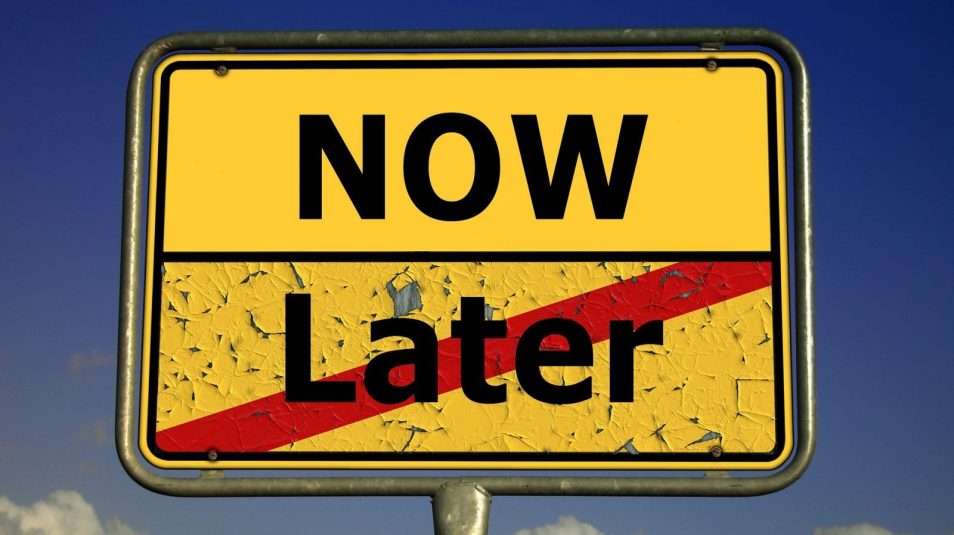Now

Inspiration, Personal Development
November 27, 2017
Bob McInnis
Topics
Actions, Authentic, influence, Self DevelopmentThe most significant defense against passivity, mediocrity, and ambivalence might be a simple presence. The guru on being present, Peter Senge, in Presence: An Exploration of Profound Change in People, Society, and Organizations, states “Too often, we remain stuck in old patterns of seeing and acting. By encouraging deeper levels of learning, we create an awareness of the larger whole, leading to actions that can help to shape its evolution and our future.”
But it takes muscle and determination to break our evolutionary responses to fight or flight – neither of which live, well, in the moment. As we merely react rather than rest in and reflect on the circumstances, we reinforce habitual behavior that stifles or worse strangles curiosity and learning.
While most of the time we aren’t in the kind of danger that requires the amygdala response I, frankly, suck at being present. I tend to live through time rather than in it. I am looking towards the next moment, the next appointment, the next thing. My attention drifts because I practice distraction instead of attention.
Most people I encounter, from 7-year-old grandchildren to 30 something postmoderns are seeking the next stimulus. We bypass opportunities in favor of a new fix. Technology and social media have been built to serve this pathology through a nasty co-dependent relationship. I, like so many, spend far too much time seeking the next thing; a "like", a friend, a thumbs up, an emoji.
According to a post on Networlding says ” We’re obsessed with our phones, a new study has found. The heaviest smartphone users click, tap or swipe on their phone 5,427 times a day, according to researcher Dscout. That’s the top 10 percent of phone users, so one would expect it to be excessive. However, the rest of us still touch the addictive things 2,617 times a day on average. No small number.”
Fight or flight becomes swipe or click with the same consequence; we are missing the moments, and the world is spinning past us.
So, can I intentionally become be more present?
I have written before about the importance of breathing and awareness of breath as an important factor in preparing to live in the now. Recognizing that you involuntarily sustain life through the inhalation and expiration of air should be a dotted line to understanding the miracle of your life. When you ‘marine breathe’ – inhale for four seconds, hold for four seconds, exhale for four seconds and remain empty for four seconds, your awareness of each tick as it passes is heightened and is a primer to focus.
I use a couple of exercises to help me stay in the moment.
I narrow my view. From the cacophony that is our world, I find stillness and silence. There is a place just behind our attitude, feelings, and prejudices where peace precedes the noise and busyness of the world. It is in your head and in your heart and regardless of your surroundings, it can be discovered. I return to my breath and feel it on the inside of my nostrils. I imagine my breath flowing out to the distractions and calming the sea. If I can envelop myself in an internal silence and stillness for as little as two minutes before a difficult meeting, I can use the energy to stay focused for almost an hour.
I recuperate. After a scheduled discussion or difficult coaching session, I leave a five-minute window to reflect. I turn my intention back on to. I try to pay attention to what my mind is contemplating. Am I blathering? Feeling joy? Am I exhausted? I try not to get involved in creating a solution, just observe my own mind in action. If I can permit myself to take these few minutes for my personal well-being, I am a better coach, consultant, husband, father, and grandfather. If I deny myself the break, I will present a much less interested, compassionate and attentive person because I will be in the room but living someplace else.
Slow down, take time to be in the moment, and start to set the standard for being present in an ever-changing world.






